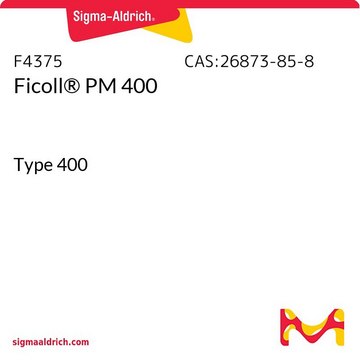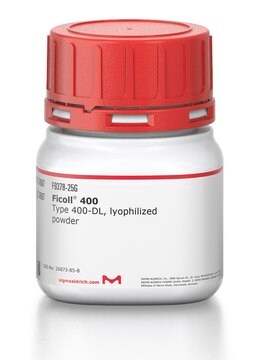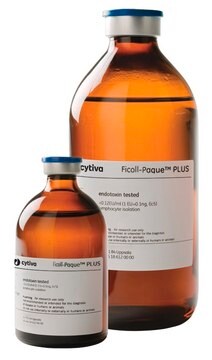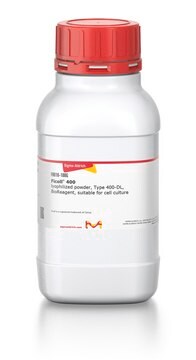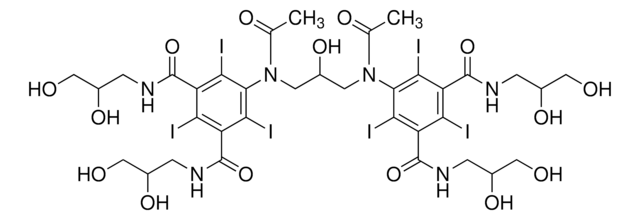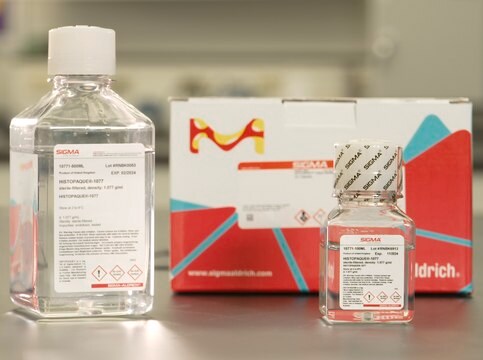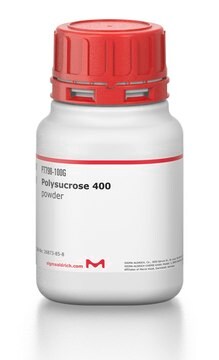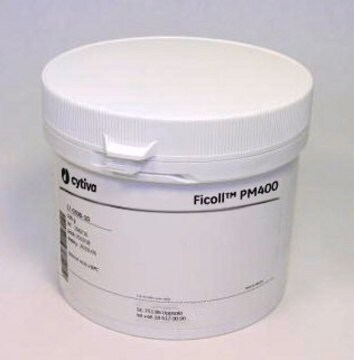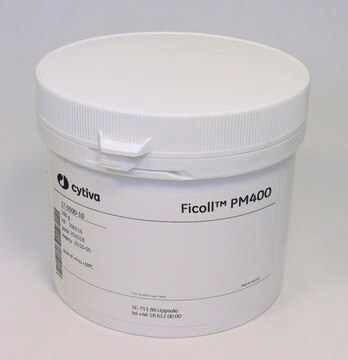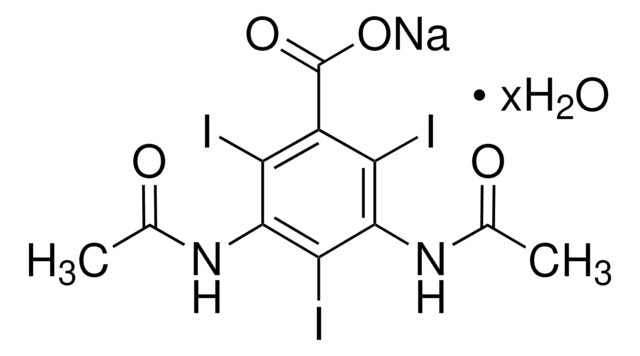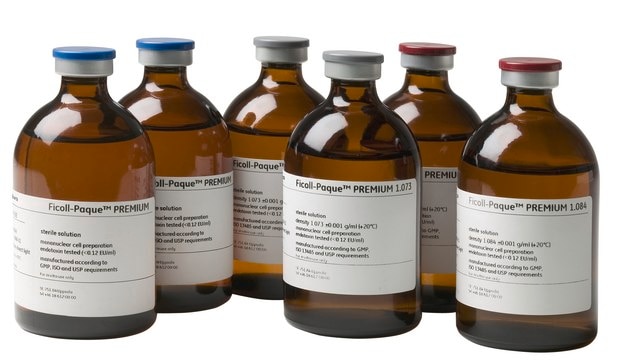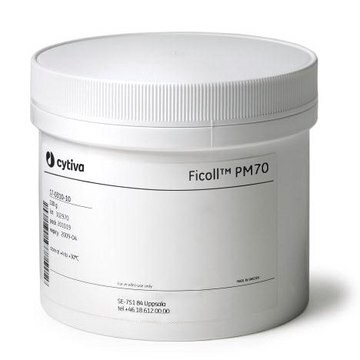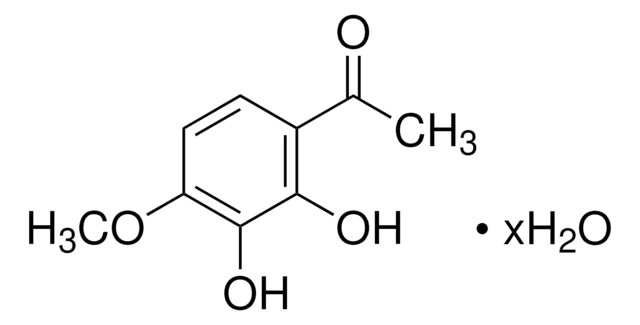F2637
Ficoll® 400
BioXtra, for molecular biology, lyophilized powder
Synonym(s):
Polysucrose 400, Ficoll 400
About This Item
Recommended Products
biological source
non-animal source
Quality Level
grade
Molecular Biology
for molecular biology
product line
BioXtra
form
lyophilized powder
foreign activity
DNase (Exonuclease), NICKase (Endonuclease), RNase and Protease, none detected
storage temp.
room temp
Looking for similar products? Visit Product Comparison Guide
General description
Application
- hybridization experiments to reduce non-specific binding of labeled probes to the membrane
- preparation of DNA loading buffer (15% Ficoll®, 0.25% bromophenol blue and 0.25% xylene cyanol FF
- separation of cells with similar density but different size (PBMC from human peripheral blood, bone marrow and umbilical cord blood)
- producing density gradients to separate subcellular components
- vitrification of cell and tissue samples.
- to compare the effect of different perfusates on Hypoxic pulmonary vasoconstriction (HPV).
Features and Benefits
- free from DNases, RNases, phosphatases and proteases
- preserves functional and morphological integrity of the separated cells
Other Notes
Legal Information
Storage Class Code
11 - Combustible Solids
WGK
WGK 3
Flash Point(F)
Not applicable
Flash Point(C)
Not applicable
Personal Protective Equipment
Certificates of Analysis (COA)
Search for Certificates of Analysis (COA) by entering the products Lot/Batch Number. Lot and Batch Numbers can be found on a product’s label following the words ‘Lot’ or ‘Batch’.
Already Own This Product?
Find documentation for the products that you have recently purchased in the Document Library.
Customers Also Viewed
Protocols
An introduction to both Northern and Southern blotting, popular methods for the transfer of macromolecules to membranous support. This article also offers a Southern blot protocol and a northern blot protocol.
Related Content
Ficoll 400 is a highly branched polymer formed by the copolymerization of sucrose and epichlorohydrin. Ficoll 400 is completely non-ionic. Because of the abundance of hydroxyl groups, Ficoll 400 is very hydrophilic and extremely water-soluble.
Our team of scientists has experience in all areas of research including Life Science, Material Science, Chemical Synthesis, Chromatography, Analytical and many others.
Contact Technical Service